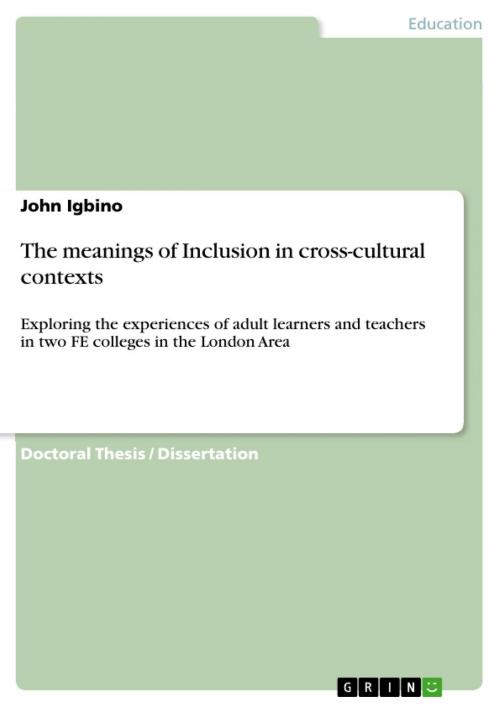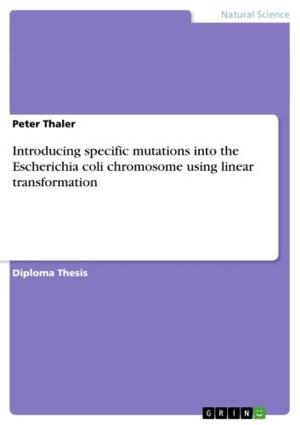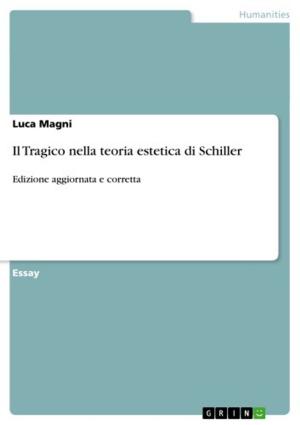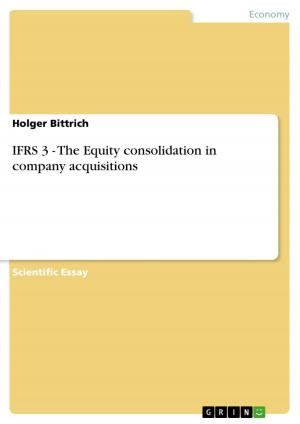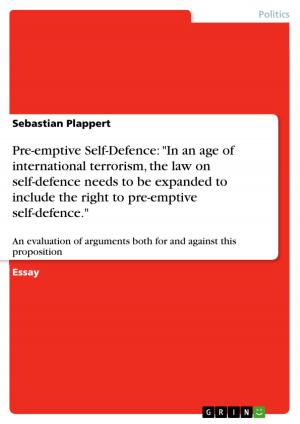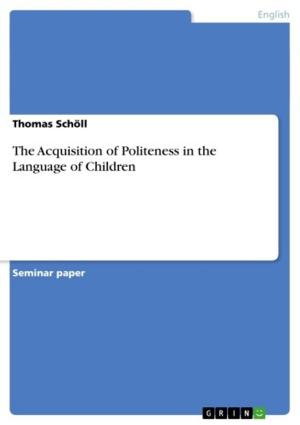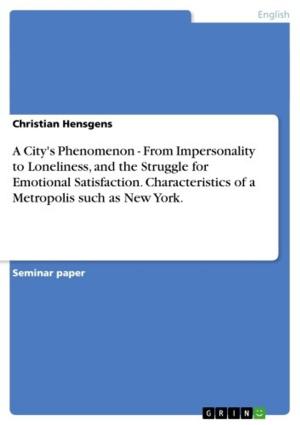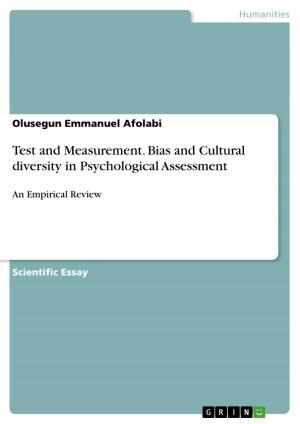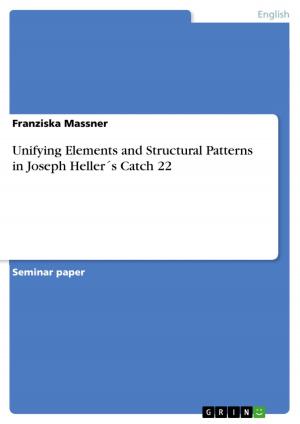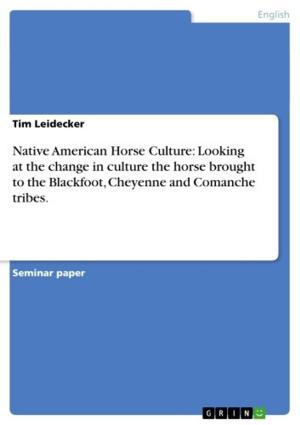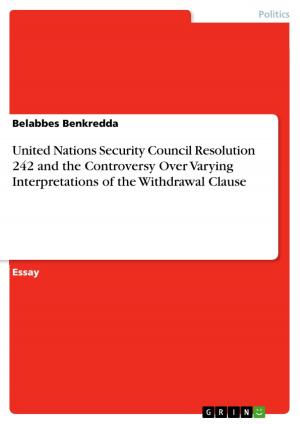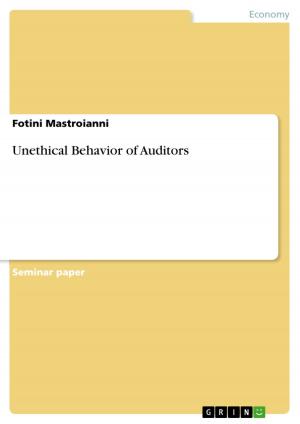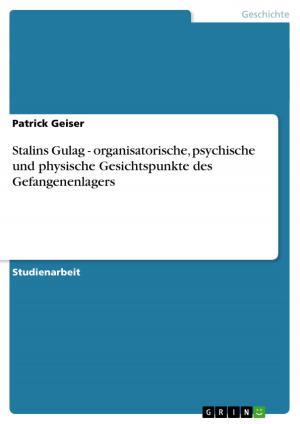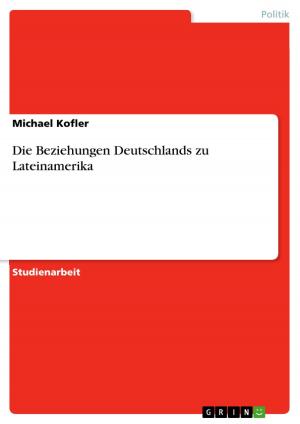The meanings of Inclusion in cross-cultural contexts
Exploring the experiences of adult learners and teachers in two FE colleges in the London Area
Nonfiction, Reference & Language, Education & Teaching, Educational Theory, Adult & Continuing Education| Author: | John Igbino | ISBN: | 9783656165491 |
| Publisher: | GRIN Publishing | Publication: | April 4, 2012 |
| Imprint: | GRIN Publishing | Language: | English |
| Author: | John Igbino |
| ISBN: | 9783656165491 |
| Publisher: | GRIN Publishing |
| Publication: | April 4, 2012 |
| Imprint: | GRIN Publishing |
| Language: | English |
Doctoral Thesis / Dissertation from the year 2010 in the subject Pedagogy - Adult Education, University of London (Goldsmiths College), course: Education, language: English, abstract: The focus of the research in this thesis concerns the meanings of inclusion. The thesis explores the meanings of inclusion within the post-compulsory education policy subsystem of the national education policy system. The thesis uses ethnographic analysis of policy documents, ethnographic interviews and surveys to explore the meanings of inclusion and the experiences of learners, teachers, College policy-makers, curriculum managers and course co-ordinators together with the factors that influence those meanings and experiences in the cross-cultural contexts of further education colleges. The thesis begins with a critical review of theoretical models of inclusion before embarking on historical explorations of the evolution of inclusive policy 1945 - 2010 and thence the meanings of inclusion from the perspectives of adult learners, teachers, College policy-makers, curriculum managers and course co-ordinators. From the results of the analysis of ethnographic interviews, surveys and documents it was found that the meanings of inclusion, the experiences of inclusion and the factors that influenced these meanings and experiences were varied and contested. The thesis argues that irrespective of the variability and contests there is a common thread running through the various meanings. The common thread which the thesis argues runs through the meanings centre on the answers to the question: inclusion into what? It was found that colleges manipulate and adjust learners to curricular programmes in order to meet the recruitment, retention, achievement, and progression targets set by the Learning and Skills Council (LSC). The thesis argues that the physical environment and the layout and the level of technology and teaching aids in the classroom are not material to the meanings of inclusion to adult learners and teachers. Instead the thesis creates new arguments based on four behavioural, principles namely, Honesty, Order, Obedience and Diligence (HOOD), concerning the centrality of primary educational goals, primary, secondary and circumstantial educational factors to the meanings of inclusion. The thesis defines how ethical dilemmas have led to perceptive distortions of the professional identity of teachers.
John Igbino lectured in the Department of Business Studies, Computing and Information Technology at Coulsdon College, Surrey, United Kingdom. He obtained his MA from the Open University and his PhD from Goldsmiths, University of London. His current research and academic interests include Lifelong Learning; Inclusion in cross-cultural contexts; Cross-cultural pedagogy; Emancipatory and Post-Colonial curricular dialogues; Power, distrust and resistance in educational research, Educational policy ethics and the ethics of educational policy. He is the author of Explorations of Lifelong Learning Ethics (2009) Forum Vol. 51; Number 3. Ethnographic Interviews: cases in the socio-cultural psychology of power (2010), Conference Paper, University of Greenwich.The Act of Changing Education and the new eugenics: an ethical analysis (2011): Conference Paper, University of Greenwich.Intercultural Dialogues: cultural dialogues of equals or cultural dialogues of unequals (2012) in Beasley, T. and Peters, M. eds. Interculturalism, Education and Dialogue: Global Studies in Education, New York, Peter Lang.The meanings of Inclusion in cross-cultural contexts (2012), GRIN Academic Publishers, Munich, GMBH.
Doctoral Thesis / Dissertation from the year 2010 in the subject Pedagogy - Adult Education, University of London (Goldsmiths College), course: Education, language: English, abstract: The focus of the research in this thesis concerns the meanings of inclusion. The thesis explores the meanings of inclusion within the post-compulsory education policy subsystem of the national education policy system. The thesis uses ethnographic analysis of policy documents, ethnographic interviews and surveys to explore the meanings of inclusion and the experiences of learners, teachers, College policy-makers, curriculum managers and course co-ordinators together with the factors that influence those meanings and experiences in the cross-cultural contexts of further education colleges. The thesis begins with a critical review of theoretical models of inclusion before embarking on historical explorations of the evolution of inclusive policy 1945 - 2010 and thence the meanings of inclusion from the perspectives of adult learners, teachers, College policy-makers, curriculum managers and course co-ordinators. From the results of the analysis of ethnographic interviews, surveys and documents it was found that the meanings of inclusion, the experiences of inclusion and the factors that influenced these meanings and experiences were varied and contested. The thesis argues that irrespective of the variability and contests there is a common thread running through the various meanings. The common thread which the thesis argues runs through the meanings centre on the answers to the question: inclusion into what? It was found that colleges manipulate and adjust learners to curricular programmes in order to meet the recruitment, retention, achievement, and progression targets set by the Learning and Skills Council (LSC). The thesis argues that the physical environment and the layout and the level of technology and teaching aids in the classroom are not material to the meanings of inclusion to adult learners and teachers. Instead the thesis creates new arguments based on four behavioural, principles namely, Honesty, Order, Obedience and Diligence (HOOD), concerning the centrality of primary educational goals, primary, secondary and circumstantial educational factors to the meanings of inclusion. The thesis defines how ethical dilemmas have led to perceptive distortions of the professional identity of teachers.
John Igbino lectured in the Department of Business Studies, Computing and Information Technology at Coulsdon College, Surrey, United Kingdom. He obtained his MA from the Open University and his PhD from Goldsmiths, University of London. His current research and academic interests include Lifelong Learning; Inclusion in cross-cultural contexts; Cross-cultural pedagogy; Emancipatory and Post-Colonial curricular dialogues; Power, distrust and resistance in educational research, Educational policy ethics and the ethics of educational policy. He is the author of Explorations of Lifelong Learning Ethics (2009) Forum Vol. 51; Number 3. Ethnographic Interviews: cases in the socio-cultural psychology of power (2010), Conference Paper, University of Greenwich.The Act of Changing Education and the new eugenics: an ethical analysis (2011): Conference Paper, University of Greenwich.Intercultural Dialogues: cultural dialogues of equals or cultural dialogues of unequals (2012) in Beasley, T. and Peters, M. eds. Interculturalism, Education and Dialogue: Global Studies in Education, New York, Peter Lang.The meanings of Inclusion in cross-cultural contexts (2012), GRIN Academic Publishers, Munich, GMBH.
